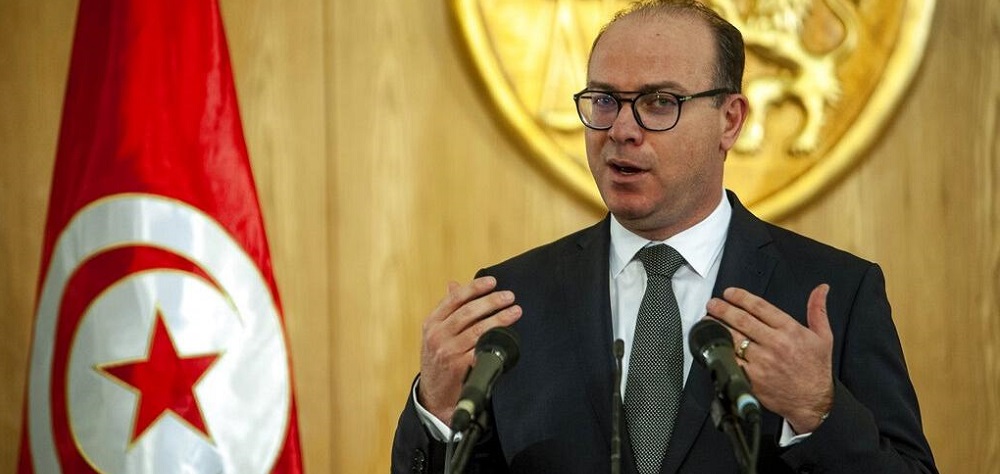Alwaght- President Kais Saied of Tunisia has named former Finance Minister Elyas al-Fakhakh the new Prime Minister as Nahda-backed candidate Habib al-Jamali failed to win the confidence of the lawmakers.
Naming al-Fakhakh by President Saied comes to move the country to political stability. A recent withdrawal of Nahda from the new cabinet appears to have pushed the country in a political impasse.
Nahda’s parliamentary weight and its role in political stability
Nahda Movement currently holds 54 out of 213 total seats of the parliament. This parliamentary weight along with its social support gives the Islamist movement a special role in the political stability especially that the head of Nahda Rached Ghannouchi is the speaker of the parliament.
The movement leads a majority in the parliament. So, the president’s interaction with it is vital to winning the vote of the confidence for the new cabinet.
The new PM-designate said that in his cabinet he will use resourceful ministers from all sides to fight corruption.
Nahda rejects cabinet participation, triggering political impasse
Following the introduction of the new PM, Ghannouchi said that all sides should join the talks to help form a new cabinet. He, however, warned that if the new PM does not allow Heart of Tunisia party in the new government, his cabinet will never get the confidence of the lawmakers.
Heart of Tunisia is the second-largest party in the parliament with 38 seats. It is led by Nabil al-Gharawi, a candidate for the presidential election.
Nahda and Heart of Tunisia are involved in an alliance in the parliament, the alliance installed Ghannouchi as the parliament speaker and also installed a Heart of Tunisia senior member as his deputy. Nahda put under pressure al-Fakhakh as it insisted that Heart of Tunisia should be part of the new cabinet.
As al-Fakhakh showed signs of not wanting to pick ministers from the Heart of Tunisia, Abdul Karim al-Harouni of Nahda said that his movement will not join the cabinet and will not give it vote of confidence.
Some sources noted that the main reason for Nahda to drop its plan to join the new government is al-Fakhakh decline to give the movement foreign and defense ministries posts. Al-Fakhakh said that the main reason driving Nahda to reject the vote of confidence to the new government is the absence of Heart of Tunisia in the cabinet.
The government will need 109 out of 217 votes of the lawmakers to form. Nahda and Heart of Tunisia hold 92 votes and thus it will be difficult for the Al-Fakhakh government to win the confidence. Even if it forms, it will be very delicate and lack the stability crucial to run the country.
Recently, the president in a speech said that the constitution is the reference and if the parliament fails to give its vote of confidence to the new cabinet, it will be dissolved and early elections will be held.
If until March 15 a new government is not formed, Saied will use its constitutional powers to dissolve the parliament and declare snap elections.
The country is now in the middle of political instability. The officials now have to struggle for political unity to meet the public demands. This is while the International Monetary Fund’s aid package, which started in 2019, is expected to end in April. This more than any other thing highlights the necessity of stabilizing the country politically to give a chance to take vital decisions for the nation’s future.



























